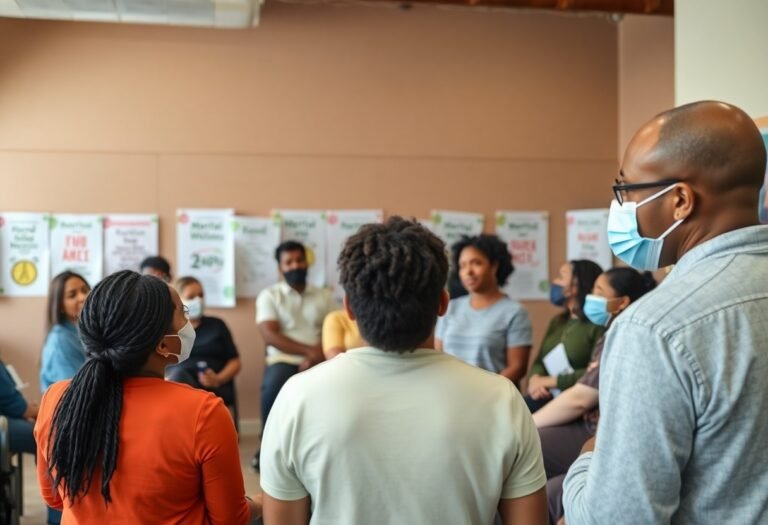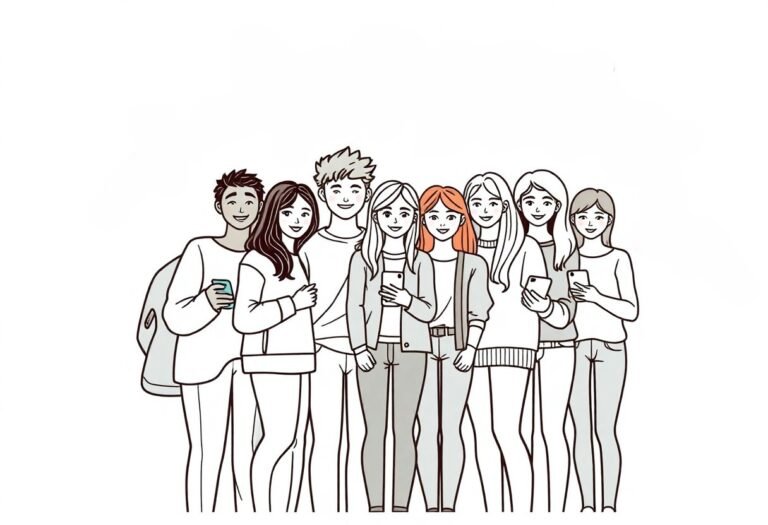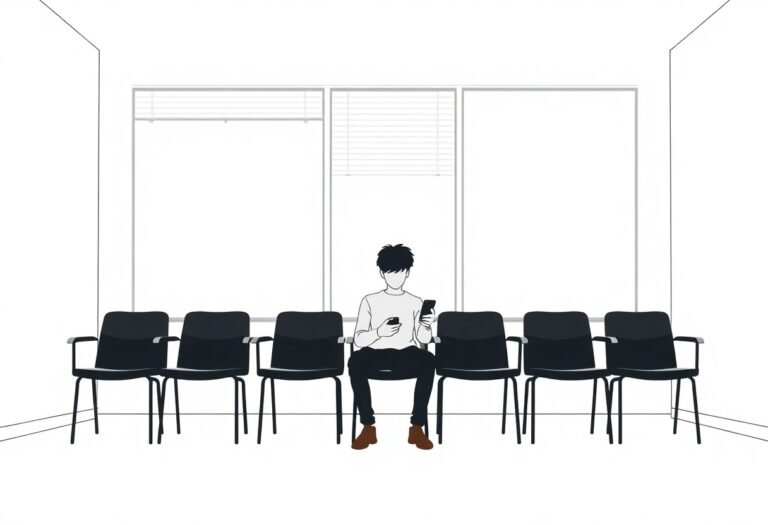Mental Health in the LGBTQ+ Community
You may be surprised to learn that the mental health challenges faced by the LGBTQ+ community are often more pronounced than those experienced by the general population. Issues such as discrimination, stigma, and social isolation can significantly impact your well-being. However, a growing network of support systems and resources is available to help you navigate these challenges. This blog post will explore the unique mental health concerns within the LGBTQ+ community, specifically focusing on Mental Health in the LGBTQplus Community, and offer insights into fostering resilience and well-being.
Key Takeaways:
Mental Health in the LGBTQplus Community
- The LGBTQ+ community faces higher rates of mental health challenges, including anxiety, depression, and suicidal ideation, due to factors such as discrimination, stigma, and social isolation.
- Supportive environments, such as affirming family, friends, and community spaces, can significantly improve mental health outcomes for LGBTQ+ individuals.
- Access to culturally competent mental health care is crucial, as many LGBTQ+ individuals report negative experiences with healthcare providers who lack awareness or understanding of their specific needs.
- Intersectionality plays a significant role; LGBTQ+ individuals from diverse backgrounds may experience compounded stressors, impacting their mental health differently based on race, socioeconomic status, and other identity factors.
- Advocacy and education about mental health resources within the LGBTQ+ community can help reduce stigma and promote accessibility to necessary services.

Understanding Mental Health
To truly support your mental well-being, it’s important to understand what mental health entails. Mental health encompasses your emotional, psychological, and social well-being, affecting how you think, feel, and act. It influences your relationships, decision-making, and coping with stress. Acknowledging mental health allows you to identify when you may need support and fosters a more positive environment within the LGBTQ+ community.
Definition and Importance
By understanding the definition of mental health, you can appreciate its significance in promoting overall well-being. Mental health is not just the absence of mental illness; it encompasses your emotional resilience and ability to deal with life’s challenges. Prioritizing mental health leads to enhanced quality of life and better relationships, making it crucial for you and those around you.
Common Mental Health Issues
Health issues among the LGBTQ+ community often include anxiety, depression, and substance use disorders. These conditions are often exacerbated by societal discrimination, stigma, and isolation, leading to significant emotional distress. Unfortunately, members of the LGBTQ+ community may face unique challenges that contribute to their struggles with mental health, such as rejection from family, bullying, and difficulties in acceptance. Knowing that these challenges may be present can empower you to seek help and create supportive connections.
To navigate these common mental health issues, you must prioritize your well-being by seeking proper support and resources. Engaging in therapy can help address underlying concerns, while joining LGBTQ+ support groups can foster a sense of community. Emphasizing self-care and maintaining strong, supportive relationships can significantly alleviate feelings of isolation and anxiety. By understanding these struggles, you can take important steps toward enhancing your mental health and resilience.
Unique Challenges Faced by the LGBTQ+ Community
Even as society becomes more accepting, the LGBTQ+ community continues to encounter unique challenges that can significantly impact mental health. These challenges often stem from the intersection of sexual orientation and gender identity with social, cultural, and systemic factors. You may face barriers such as inadequate access to mental health resources, increased vulnerability to violence, and ongoing societal stigma, all of which can exacerbate feelings of anxiety and depression.
Stigma and Discrimination
One of the most profound challenges is the stigma and discrimination that LGBTQ+ individuals often face. This societal prejudice can manifest in various forms, including bullying, workplace discrimination, and ostracization from family and friends. You may find that these experiences create internalized negative feelings about your identity, leading to heightened stress and anxiety levels.
Social Isolation
Behind the LGBTQ+ community’s initiatives for acceptance lies the troubling reality of social isolation, which can significantly affect your mental well-being.
This isolation often stems from the fear of rejection or discrimination, making it challenging for you to form genuine connections. Many individuals feel cut off from their communities, leading to feelings of loneliness and despair. As a result, a lack of strong support systems can hinder your ability to cope with mental health challenges. Positive relationships can serve as a protective factor, so it’s vital to actively seek out welcoming spaces and supportive networks. Building connections with others who identify similarly can create a sense of belonging, vital for your overall mental health.
Impact of Family and Community Support
All individuals within the LGBTQ+ community benefit significantly from family and community support. When your loved ones embrace your identity, you gain a sense of belonging that can greatly enhance your mental health. Supportive environments not only foster confidence and self-acceptance but also diminish feelings of isolation and fear, paving the way for happier, healthier lives.
The Role of Acceptance
Role of acceptance within your family and community can make a profound difference in your overall well-being. When those around you affirm your identity, it nurtures a sense of safety and validation. This acceptance promotes resilience and empowers you to navigate the challenges of life more effectively.
Mental Health Outcomes
Outcomes of having strong family and community support are overwhelmingly positive for your mental health. You are likely to experience less anxiety, depression, and feelings of worthlessness when support structures are in place. Due to this backing, you can enjoy enhanced self-esteem and emotional stability. In contrast, a lack of support can lead to devastating consequences such as emotional distress, increased risk of substance abuse, and even suicidal ideation. It’s important to cultivate an environment where you feel accepted and valued, as this will foster resilience and promote better mental health outcomes, significantly improving your quality of life.
Access to Mental Health Services
Despite the growing recognition of mental health issues within the LGBTQ+ community, many individuals still face significant challenges in accessing appropriate mental health services. Discrimination, stigma, and a lack of understanding from healthcare providers can hinder your ability to seek the support you need. Additionally, financial barriers and limited availability of LGBTQ+-affirming professionals further complicate your access to effective care.
Barriers to Care
Around 40% of LGBTQ+ individuals report experiencing discrimination in healthcare settings, which can deter you from seeking assistance. This discomfort may stem from past experiences or the fear of being judged, leading to a reluctance to engage with mental health services. Moreover, the absence of culturally competent practitioners can create an environment where you feel misunderstood or invalidated.
Resources Available
On the brighter side, there are numerous resources available to support your mental health journey within the LGBTQ+ community. Organizations such as the Trevor Project and Pride Institute offer crisis intervention, counseling, and education to address your mental health needs. Additionally, community-based support groups and online platforms provide safe spaces for you to connect with others who share similar experiences.
Hence, accessing these resources can be a transformative step for you. By reaching out to organizations like the National Alliance on Mental Illness (NAMI) or GLAAD, you gain access to a wealth of information and support networks focused on mental health in the LGBTQ+ community. This will not only increase your understanding of available services but also empower you to take control of your mental well-being. Embracing these resources can foster connection, understanding, and healing in your personal journey.
Coping Strategies and Resilience
Many individuals in the LGBTQ+ community face unique challenges that can impact mental health. However, embracing effective coping strategies and fostering resilience can significantly enhance your well-being. By cultivating a supportive environment and adopting healthy habits, you can navigate life’s stresses while building a stronger foundation for emotional health.
Healthy Coping Mechanisms
Below are some effective healthy coping mechanisms you can adopt: engage in physical activity, practice mindfulness through meditation or yoga, enjoy creative outlets like art or writing, and maintain social connections with supportive friends and family. These strategies can provide you with a sense of purpose, reduce stress, and promote overall mental wellness.
Building Resilience
For you, building resilience involves developing a mindset that allows you to bounce back from adversity. This can include cultivating a positive outlook, setting realistic goals, and utilizing support networks effectively. Such skills are necessary for overcoming challenges and sustaining your mental health in the face of discrimination or other difficulties.
Plus, building resilience isn’t just about enduring tough times; it’s about thriving despite them. Engage in activities that invigorate you and prioritize your mental wellness. Building relationships with others in the LGBTQ+ community can foster a sense of belonging that strengthens your resilience. Also, practicing self-compassion can help you combat negative self-talk. By cultivating a robust support system and developing coping skills, you enhance your ability to adapt, ensuring that you not only survive but also thrive in an often challenging world. Such resilience can significantly uplift your overall emotional stability.
Promoting Awareness and Advocacy
Not enough attention is given to the mental health needs of the LGBTQ+ community, despite the significant challenges faced. Raising awareness about these issues is necessary for fostering understanding, reducing stigma, and encouraging individuals to seek help. By promoting advocacy efforts, you contribute to a more inclusive environment where mental health support is readily available and accepted.
Importance of Mental Health Education
Above all, mental health education plays a pivotal role in addressing the unique challenges the LGBTQ+ community faces. By understanding the psychological effects of discrimination, societal rejection, and identity struggles, you can better equip yourself and others to foster resilience and support. Education empowers you to break down stereotypes, advocate for better resources, and create a more accepting society.
Advocacy Efforts for LGBTQ+ Rights
Health advocacy for LGBTQ+ rights is vital in ensuring fair treatment and access to mental health resources. This includes lobbying for policies that address discrimination, support affirmative care, and elevate awareness of mental health issues within the community. When you participate in these advocacy efforts, you’re not only contributing to systemic change but also empowering others to speak out and seek the help they deserve.
Rights ensure that every individual in the LGBTQ+ community has access to the same mental health resources as others. Support for affirmative therapy, anti-discrimination laws, and mental health awareness campaigns can lead to a significant reduction in the disparities faced by LGBTQ+ individuals. When advocates unite and mobilize, you amplify the voices of those who are often marginalized, highlighting that mental health matters and that everyone deserves a safe space to express their identity and seek assistance. Your involvement in advocacy efforts can contribute positively to the mental well-being of the entire community.
Conclusion
From above, it’s clear that mental health concerns in the LGBTQ+ community are significant and multifaceted. You must recognize the unique challenges faced by individuals within this community, such as discrimination and isolation, which can impact their mental well-being. By prioritizing open conversations, seeking support, and advocating for inclusive resources, you contribute to breaking down the barriers that hinder mental health awareness and treatment. Engage actively in fostering an environment where everyone feels accepted and valued, as this can lead to improved mental health outcomes for individuals in the LGBTQ+ community.
FAQ
Q: What mental health challenges are commonly faced by individuals in the LGBTQ+ community?
A: Individuals in the LGBTQ+ community often face various mental health challenges, including higher rates of anxiety, depression, and suicidal ideation compared to their heterosexual counterparts. These challenges can stem from factors such as societal discrimination, stigma, rejection by family and friends, and internalized homophobia. Additionally, experiences of bullying and harassment in schools and workplaces can further exacerbate mental health issues within the community.
Q: How does discrimination impact the mental health of LGBTQ+ individuals?
A: Discrimination can significantly impact the mental health of LGBTQ+ individuals by leading to feelings of isolation, low self-esteem, and hopelessness. Experiencing prejudice or violence can trigger symptoms of post-traumatic stress disorder (PTSD) as well. The stress from living in a society that may not fully accept or validate their identities can lead to chronic stress, contributing to a range of mental health issues, including substance abuse and self-harm.
Q: What resources are available for LGBTQ+ individuals seeking mental health support?
A: There are numerous resources available, including LGBTQ+ specific helplines, support groups, and counseling services. Organizations such as the Trevor Project and the National Alliance on Mental Illness (NAMI) provide valuable information and support specifically tailored for the LGBTQ+ community. Many therapists and mental health professionals also specialize in LGBTQ+ issues, providing affirming care that can help individuals navigate their unique challenges.
Q: How can allies support the mental health of LGBTQ+ individuals?
A: Allies can play a vital role in supporting the mental health of LGBTQ+ individuals by fostering an inclusive and affirming environment. This includes actively advocating for LGBTQ+ rights, educating themselves about the challenges faced by the community, and offering a listening ear. Showing acceptance and respect for individuals’ identities and being available for discussion about struggles can make a significant difference in helping them feel understood and supported.
Q: What are some signs that someone in the LGBTQ+ community may be struggling with their mental health?
A: Signs of mental health struggles can vary, but typical indicators may include withdrawal from social activities, changes in mood or behavior, increased irritability, sudden changes in appetite or sleep patterns, and difficulty concentrating. Additionally, verbal expressions of hopelessness or worthlessness or engaging in self-destructive behaviors may also indicate significant distress. If you suspect someone is struggling, approach them compassionately and encourage them to seek professional help.







